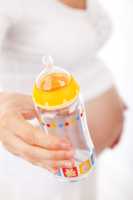Author Interviews, Heart Disease, Stroke / 03.04.2025
ACC25: Microplastics May Be Unrecognized Risk Factor for Stroke
MedicalResearch.com Interview with:
Sai Rahul Ponnana, M.S
Advanced Data Analytics Research Analyst
Cardiovascular Research Institute
Case Western Reserve University School of Medicine
Wolstein Research Building,
Cleveland, OH. 44106-7288
MedicalResearch.com: What is the background for this study?
Response: Microplastics are tiny plastic particles less than 5 mm which have become a pervasive environmental pollutant, detectable in air, water, food, and even human tissues. While their ecological impacts have been well-documented, their influence on human health, particularly cardiovascular health, remains underexplored. Recent mechanistic studies suggest that microplastics can induce inflammation, oxidative stress, and endothelial dysfunction, all of which are pathways implicated in chronic disease and ASCVD. In our study, we analyzed a total of 709 U.S. coastal census tracts to investigate the association between marine microplastic concentration data obtained from NOAA NCEI database and the prevalence of stroke and other chronic non-communicable diseases (NCDs) such as high blood pressure and diabetes, sourced from CDC places database.
(more…)



